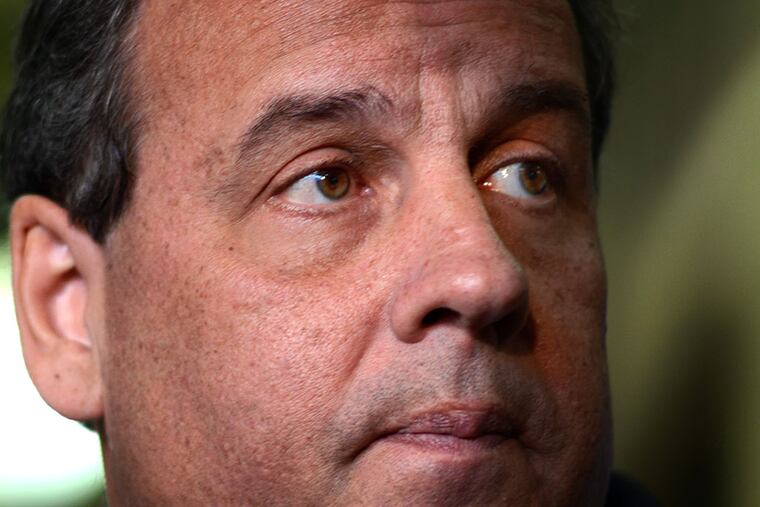Shouldn't break promise
New polls show Gov. Christie has lost some of the popularity that put him at the top of the list of likely Republican presidential candidates. He will lose even more when voters outside New Jersey get wind of the lack of integrity he has shown in fulfilling a promise to fund state pensions.

New polls show Gov. Christie has lost some of the popularity that put him at the top of the list of likely Republican presidential candidates. He will lose even more when voters outside New Jersey get wind of the lack of integrity he has shown in fulfilling a promise to fund state pensions.
Three years ago, Christie promised to increase pension payments in exchange for Democrats' support of a legislative package that reduced costs by raising the state employee retirement age from 62 to 65, ending cost-of-living raises for retirees, and increasing workers' contributions to health-care and pension benefits.
Faced with a revenue shortfall, however, Christie reneged on the deal, agreeing to make only a $681 million payment into the pension funds this year, even though $2.25 billion would be required under the agreement. Christie contends he had no choice, but he did. His own inflated revenue projections helped cause the problem. And the Legislature offered a solution in June, voting to increase pension payments by raising taxes on wealthy individuals and corporations, but Christie vetoed the measure.
Of course, no politician likes to raise taxes, especially if he wants to win the favor of tax-averse Republicans in a presidential campaign. But the good of the state should be a higher priority for a governor than personal ambition. And New Jersey, one of the wealthiest states in America, can afford to raise taxes on the rich to keep its pension funds solvent.
For years, Californians eschewed tax hikes as they watched their schools and public services deteriorate. But they finally got fed up with their state's descent toward mediocrity and passed Proposition 30, which includes sales- and income-tax increases as well as a 1 percent surtax on millionaires. It has worked so well that there is talk of extending the two-year measure when it expires in 2016.
Having criticized past New Jersey governors for not adequately funding the pension system, Christie is now committing the same offense. The results will be dire for retirees if he continues down this path. Actuaries using new accounting rules say the state's unfunded pension liabilities have increased to $83 billion. Only Illinois, Connecticut, and Kentucky have deeper holes.
By those calculations, the Public Employees' Retirement System could run out of money in 2024, and the Teachers' Pension and Annuity Fund would go broke in 2027. The pension systems' trustees sued Christie on Wednesday, but a similar suit was dismissed in June, when a state Superior Court judge found that the governor had used his emergency powers properly.
Christie doesn't need a court to tell him what to do. He created this emergency and has other options to end it. State employees have lived up to their end of the bargain legislators made by accepting higher payroll deductions. Unlike the state, they never stopped paying their negotiated share into the pension funds. The fair course for someone who wants to be president is to keep his promise and do the same.